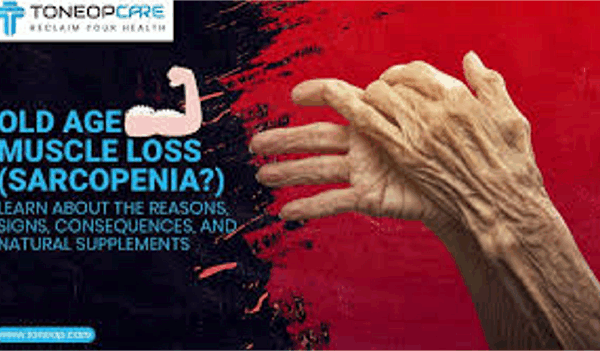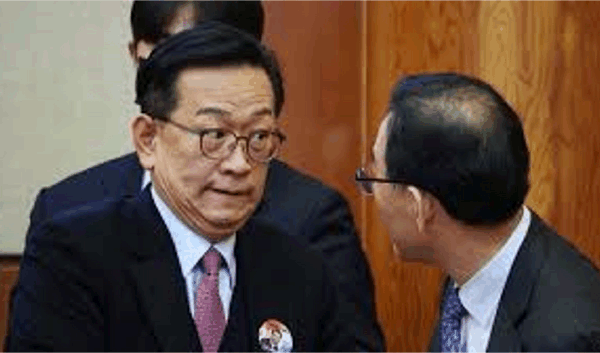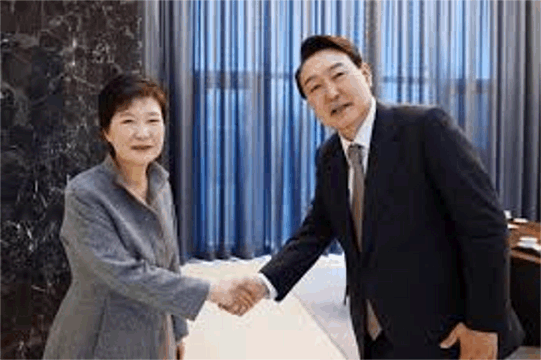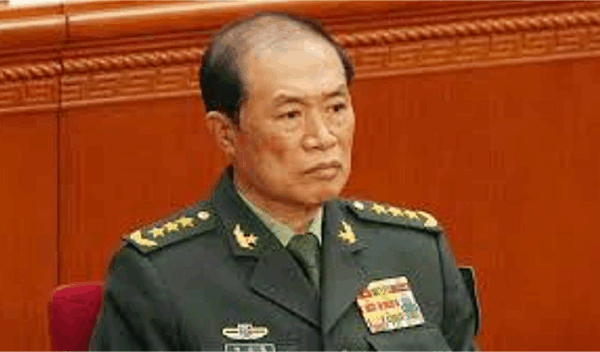부유한 호주인들이 노인요양에 더 많은 비용을 지불하도록 요구
캣 웡과 도미닉 지아니니
2024년 3월 12일 화요일 오전 10:49 AEDT
정부가 모든 사람이 나이가 들었을 때 소득에 관계없이 주거 및 재택 서비스를 이용할 수 있도록 보장하려면 부유한 호주인들은 자신의 노인 간호에 대해 더 많은 비용을 지불해야 합니다.
노인 간호 시스템에 대한 검토 결과, 노인 연금이나 기타 소득 지원을 받는 65세 이상 인구의 비율이 2060년대 초까지 15% 포인트 감소할 것으로 예상되면서 호주 노인들의 전반적인 부는 증가할 것으로 예상됩니다.
퇴직연금과 자산 증가로 인해 전체 연금율을 받는 사람들의 비율이 감소할 가능성이 있다고 말했다.
그러나 자신의 집을 소유하지 않은 연금 수령자와 같이 상당한 수단 없이 은퇴한 호주인이 여전히 많이 있습니다.
정부는 현재 주거용 노인 간호의 약 75%와 재택 간호 비용의 95%를 지원하지만, 노동 연령 인구 비율과 대부분 그렇지 않은 호주 노인 비율이 감소함에 따라 세금 기반은 계속해서 줄어들고 있습니다. 소득세 납부 – 성장합니다.
따라서 제한된 자금으로 노년까지 호주인을 계속 지원하려면 저축이 더 많은 사람들이 연방 예산의 압박을 완화하기 위해 노후 생활 돌봄에 더 많은 비용을 지불해야 한다고 정부가 위임한 노인 케어 태스크 포스는 권장합니다.
노인 간호에 공동 기부가 이루어졌지만 이는 자금의 5%만을 차지하며 보고서는 이 금액이 “매우 낮고” 예상되는 수요 증가를 지원하지 못할 것이라고 밝혔습니다.
태스크포스에 참여한 전 NSW 총리 마이크 베어드(Mike Baird)는 시스템을 더욱 지속 가능하게 만들기 위해서는 개혁이 필요하다고 말했습니다.
“정부가 모든 것을 할 수 있다고 생각하는 것은 합리적이지 않습니다. 예산의 모든 부분에 걸쳐 제약과 요구가 있습니다.”라고 그는 말했습니다.
“따라서 수단이 있는 사람들에게 더 많은 기여를 요청하는 것은 논리적인 단계이며, 자원이 없는 사람들을 위한 안전망을 마련하는 것도 어느 정도 보호를 제공하므로 균형이 잘 잡혀 있다고 생각합니다.”
태즈메이니아 노동 선거 캠페인 시작
Anthony Albanese는 베이비부머 세대가 노인 요양 시설에 자금을 지원하게 하면 더 열심히 일한 사람들이 처벌받을 것이라고 부인합니다. (에단 제임스/AAP 사진)
Anthony Albanese 총리는 베이비붐 세대의 은퇴 자금을 마련하는 것이 시스템을 지속 가능하게 만드는 데 도움이 되기 때문에 더 열심히 일하는 사람들을 처벌할 것이라는 사실을 부인했습니다.
그는 화요일 ABC 라디오와의 인터뷰에서 “이것은 부정적인 측면이 아니라 미래에도 지속 가능한 시스템을 확보하는 것”이라고 말했습니다.
“우리는 권장 사항을 고려할 것입니다. 사랑하는 사람이 돌봄이 필요하고 집에서 계속 생활할 수 없는 경우 사람들에게 어려운 시기라는 것을 알고 있습니다.”
보고서는 또한 이 계획의 목적이 호주인들이 은퇴를 위해 저축하는 것을 돕는 것이기 때문에 건강 및 노인 간호 비용을 충당하기 위해 퇴직연금을 활용해야 한다고 말했습니다.
그러나 노인 케어 시스템에 자금을 지원하기 위한 부과금이나 세금은 권장되지 않았으며 정부에 의해 배제되었습니다.
야당 보건 대변인 앤 러스턴도 새 세금에 반대하며 “이 세금이 많은 문제, 특히 우리가 호주 노인들에게 바라는 선택권과 통제권을 반드시 해결하는 것은 아니다”라고 말했습니다.
자유당 상원의원 앤 러스턴
자유당 상원 의원 Anne Ruston은 새로운 세금이 시스템에 대한 문제를 해결하지 못한다며 반대합니다. (Lukas Coch/AAP PHOTOS)
러스턴 상원의원은 또한 장관에게 인력 부족으로 인해 시스템이 더욱 지속 가능해지는 방법을 논의할 것을 촉구했습니다.
노인 및 지역 사회 돌봄 제공자 협회(Aged and Community Care Providers Association)의 CEO인 Tom Symondson은 보고서를 환영하고 정부가 제안 사항을 이행할 것을 촉구했습니다.
“호주의 노인요양시설은 시스템이 무너지는 동안 반창고 솔루션과 계속 혼동할 수 없습니다.”라고 그는 말했습니다.
“모든 호주인은 위치, 소득 또는 재정적 수단에 관계없이 고품질의 노인 간호를 이용할 수 있어야 합니다.”
Anika Wells 노인 복지 장관이 의장을 맡은 태스크 포스는 정부가 고려 중인 23가지 권장 사항을 제시했습니다.
그녀는 “모든 호주인들이 존엄성, 안전, 고품질의 보살핌을 받으며 노년을 보낼 수 있도록 하려면 뭔가 변화가 필요하다는 것이 보편적으로 받아들여지고 있습니다”라고 말했습니다
Calls for wealthy Australians to pay more for aged care
Kat Wong and Dominic Giannini
Tue, 12 March 2024 at 10:49 am AEDT
Wealthier Australians should pay more for their own aged care if the government wants to ensure everyone can access to residential and in-home when they grow old, regardless of their means.
The overall wealth of older Australians is expected to increase with the proportion of people over 65 accessing the aged pension or other income support projected to decline by 15 percentage points by the early 2060s, a review into the aged care system found.
The proportion of people on the full pension rate was likely to decrease due to increased superannuation and assets, it said.
However, there are still a large number of retired Australians without significant means, like pensioners who do not own their own homes.
The government currently funds about 75 per cent of residential aged care and 95 per cent of home care costs, but the tax base has continued to dwindle as the proportion of the working age population declines and the ratio of older Australians – most of whom do not pay income tax – grows.
So, if it is to continue supporting Australians with limited means into old age, those with more savings should start paying more for their later life care to take pressure off the federal budget, the government-commissioned Aged Care Task Force recommends.
Though co-contributions have been made to aged care, these make up just five per cent of funding, which the report says is “extremely low” and will not support the projected growth in demand.
Reforms are needed to make the system more sustainable, said former NSW premier Mike Baird, who sat on the task force.
“It’s not reasonable to think that government can do all of that, there are constraints and demands across all parts of budget,” he said.
“So asking those who have the means to contribute more is a logical step and having a safety net for those that don’t have the resources also provides some protection, so I think it’s a good balance.”

Prime Minister Anthony Albanese denied getting boomers to fund their retirement would punish people who worked harder as it would help make the system sustainable.
“This isn’t about any negative aspect, this is about making sure that we have a system that’s sustainable into the future,” he told ABC radio on Tuesday.
“We’ll consider the recommendations, we know that it is a difficult time for people when you have a loved one who requires care who’s unable to continue to live at home.”
Superannuation should also be drawn upon to cover health and aged care costs given the purpose of the scheme is to help Australians save for retirement, the report said.
However, levy or tax to fund the aged care system was not recommended and has been ruled out by the government.
Opposition health spokeswoman Anne Ruston was also against a new tax, saying it “doesn’t necessarily address the many challenges and particularly the choice and control we’d like older Australians to have”.

Senator Ruston also called for the minister to address how the system would become more sustainable with workforce shortages.
Aged and Community Care Providers Association chief executive Tom Symondson welcomed the report and urged the government to implement its suggestions.
“Aged care in Australia cannot continue to muddle along with band-aid solutions while the system crumbles,” he said.
“Every Australian should have access to high quality aged care, regardless of their location, income or financial means.”
The task force, chaired by Aged Care Minister Anika Wells, made 23 recommendations which are being considered by the government.
“There is universal acceptance that something must change in order to ensure all Australians can age with the dignity, safety and high-quality care they deserve,” she said.










